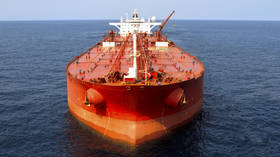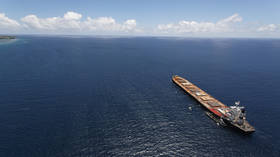
Three Greek shipping firms have reportedly refused to carry Russian crude as US targets price-cap violations

© HeliRy
Three leading Greek shipping companies have stopped carrying Russian seaborne oil in recent weeks to avoid US sanctions, Reuters reported on Thursday, citing oil traders and shipping data.
The firms – Minerva Marine, Thenamaris, and TMS Tankers – actively shipped Russian oil up until September and October, when they started scaling down their involvement, Reuters has said.
The three companies also declined requests for vessels to carry Russian crude loading in November and later, the agency said, citing traders who had previously used the firms’ services.
Reuters said it had been unable to obtain the shippers’ comments on the matter.
The Greek firms’ reported exit from the trade followed a tightening of US restrictions on Russian seaborne oil. The EU and G7 countries imposed a price cap of $60 a barrel on Russian seaborne crude in December 2022 but had not previously enforced it.
Since October, however, Washington has imposed the first sanctions on tanker owners based in Türkiye and the United Arab Emirates that carried Russian oil sold above the price ceiling. According to Reuters, the US Treasury also sent notices to ship management firms requesting information about 100 vessels it suspects of violating the Western restrictions.

According to numerous media reports, since the introduction of Western restrictions on its seaborne crude, Russia has started to use the so-called ‘shadow fleet’, aging tankers belonging to shipping firms registered in India, Hong Kong, Seychelles, and other locations, on which the price restrictions have limited traction, along with non-Western maritime services.
This enabled the sanctioned country and a major oil exporter to continue to sell its crude above the price cap and transport it to buyers in Asia, mainly India and China.
For more stories on economy & finance visit RT’s business section




